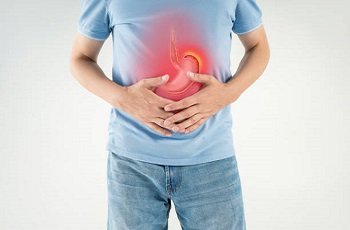See 6 (six) Foods to help you Reduce Abdominal Bloating
Have you ever heard of abdominal bloating? It’s a stomach condition affecting many people around the world today. But what really is Abdominal bloating? This is what this post will be discussing here. The meaning of Abdominal bloating, its causes and off course the food you can eat that can help reduced Abdominal bloating. See more details below.

Abdominal bloating usually occurs when there is an excess gas build up in your stomach or intestine especially after meals. Another scenario associated with Abdominal bloating is fluid retention in the body which makes the belly looks larger than usual and it may make you feel tender or painful. Ever wonder why we have so many increase cases of men with pot bellies? I guess you now know.
Abdominal bloating can also occur when the gastrointestinal (GI) tract is filled with air or gas. We notice that most people describing bloating as feeling full, tight, or swollen in the abdomen. Your Abdomen may also be swollen, hard, and painful.
SEE ALSO: See how to Solve your Body Itching after Bath
Bloating have causes that aren’t due to underlying disease. Examples includes drinking carbonated beverages, eating a large meal, menstruation, constipation or wind.
Bloating can be accompanied by pain. Bloating can have causes that aren’t due to underlying disease. Examples includes drinking carbonated beverages, eating a large meal, menstruation, constipation or wind.
Why do you feel bloated?
Gas and air
Gas is the most common cause of bloating, especially after eating. Gas builds up in the digestive tract when undigested food gets broken down or when you swallow air. Everyone swallows air when they eat or drink. But some people can swallow more than others, especially if they are smoking, chewing gum, wearing loose dentures and eating or drinking too fast.
How common is stomach bloating?
Between 10% and 25% of people who are healthy complain of occasional Abdominal bloating. Among those diagnose with irritable bowel syndrome (IBS), it may be as much as 90%.
However, there are some foods that can help you reduce abdominal bloating
- Cucumbers: Cucumbers contains a lot of water that help wash away digestive issues created by dehydration. Consuming cucumbers will help the stomach feel less bloat or heavy.
- Ginger: this plant is known to be spicy, which helps the gut juices to flow as this aid digestion and help your stomach empty faster, thereby preventing the stomach from bloating.
- Bananas: These contain potassium which helps to calm down the body acid production in the belly.
- Tomatoes: these contain lycopene, an antioxidant that works as an anti-inflammatory all over the body. Tomatoes also contain potassium which lower the level of sodium that causes abdominal bloating in the stomach. You can add or eat raw tomatoes to your diet.
- Avocados: Avocados are packed with potassium,. The body needs potassium to manage it sodium level which in turn controls the amount of water in the body and help reduce abdominal bloating.
- Watermelon: watermelon contains more than 90% of water, which means taking a slice can help keep your body hydrated to avoid bloating.
Lastly, how long does abdominal bloating last? If your bloating is due to something you ate or drank or due to hormone fluctuations, it should begin to ease within few hours within a day. If you are constipated, it won’t go down until your visit the rest room. Nevertheless, if the bloated stomach doesn’t go away, you should seek medical care to determine the cause.
SHARE FOR US: if you found this Post useful, help others discover it too. Just click and share using the buttons below!
What's Your Reaction?




















